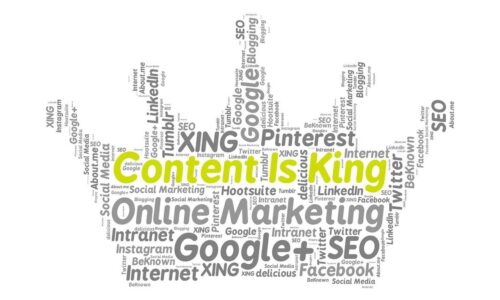
When it comes to online advertising, there are two terms that are often used interchangeably: PPC and CPC. While they may seem similar, they actually refer to two different types of advertising models. In this article, we’ll explore the differences between PPC and CPC and how they can impact your online advertising strategy.
What is PPC?
PPC stands for pay-per-click and is a type of online advertising model where advertisers pay a fee each time their ad is clicked. This model is commonly used in search engine advertising, such as Google AdWords, where advertisers bid on keywords and pay for each click on their ad.
How Does PPC Work?
by Museums Victoria (https://unsplash.com/@museumsvictoria)
In a PPC campaign, advertisers bid on specific keywords that are relevant to their target audience. When a user searches for those keywords, the search engine will display ads that are relevant to the search query. The position of the ad is determined by the bid amount and the ad’s quality score, which is based on factors such as ad relevance and landing page experience.
When a user clicks on the ad, the advertiser is charged a predetermined amount, which is deducted from their budget. Once the budget is depleted, the ad will no longer be displayed.
Advantages of PPC
PPC offers several advantages for advertisers, including:
- Targeted advertising: With PPC, advertisers can target specific keywords and demographics, ensuring their ads are shown to the right audience.
- Cost control: Advertisers have control over their budget and can set a maximum bid for each keyword.
- Measurable results: PPC campaigns provide detailed analytics, allowing advertisers to track the performance of their ads and make adjustments as needed.
What is CPC?
CPC stands for cost-per-click and is a pricing model used in online advertising. In this model, advertisers pay a fee each time their ad is clicked, similar to PPC. However, CPC is not limited to search engine advertising and can be used in other forms of online advertising, such as display ads and social media ads.
How Does CPC Work?
by Joe Green (https://unsplash.com/@jg)
In a CPC campaign, advertisers pay a predetermined amount for each click on their ad. This amount is set by the advertiser and can vary depending on the platform and the competitiveness of the keywords. Unlike PPC, where the bid amount is a factor in ad placement, CPC ads are typically displayed in a rotating fashion.
Advantages of CPC
CPC offers several advantages for advertisers, including:
- Cost-effective: With CPC, advertisers only pay when their ad is clicked, making it a cost-effective option for those on a tight budget.
- Flexibility: CPC can be used in various forms of online advertising, giving advertisers more options for reaching their target audience.
- Easy to track: Like PPC, CPC campaigns provide detailed analytics, allowing advertisers to track the performance of their ads and make adjustments as needed.
PPC vs CPC: What’s the Difference?
While PPC and CPC may seem similar, there are a few key differences between the two advertising models.
Payment Structure
The main difference between PPC and CPC is the payment structure. In PPC, advertisers pay each time their ad is clicked, while in CPC, advertisers pay a predetermined amount for each click on their ad.
Ad Placement
In PPC, the bid amount and ad quality score determine the placement of the ad. The higher the bid and quality score, the higher the ad will appear in search results. In CPC, ads are typically displayed in a rotating fashion, regardless of the bid amount.
Platform Usage
PPC is primarily used in search engine advertising, while CPC can be used in various forms of online advertising, such as display ads and social media ads.
Which One Should You Use?
When deciding between PPC and CPC, it’s important to consider your advertising goals and budget. PPC may be a better option for those looking to target specific keywords and demographics, while CPC may be more cost-effective for those on a tight budget.
It’s also important to consider the platform you’ll be using for your advertising. If you’re primarily using search engine advertising, PPC may be the better option. However, if you’re using various forms of online advertising, CPC may be a more versatile choice.
Tips for a Successful PPC or CPC Campaign
Whether you choose PPC or CPC, there are a few tips that can help you run a successful campaign.
Choose the Right Keywords
by National Cancer Institute (https://unsplash.com/@nci)
Keywords are the foundation of any successful PPC or CPC campaign. It’s important to choose keywords that are relevant to your target audience and have a high search volume. You can use tools like Google Keyword Planner to research and select the best keywords for your campaign.
Create Compelling Ad Copy
Your ad copy is what will entice users to click on your ad, so it’s important to make it compelling and relevant. Use strong calls to action and highlight the benefits of your product or service to encourage users to click.
Monitor and Adjust Your Campaign
It’s important to regularly monitor the performance of your campaign and make adjustments as needed. This could include adjusting your bid amount, targeting different keywords, or changing your ad copy. By regularly monitoring and adjusting your campaign, you can ensure that you’re getting the best results for your budget.
Conclusion
PPC and CPC are two different advertising models that can help you reach your target audience and achieve your advertising goals. While they may seem similar, it’s important to understand the differences between the two and choose the one that best fits your budget and advertising strategy. By following the tips outlined in this article, you can run a successful PPC or CPC campaign and see the results you’re looking for.












